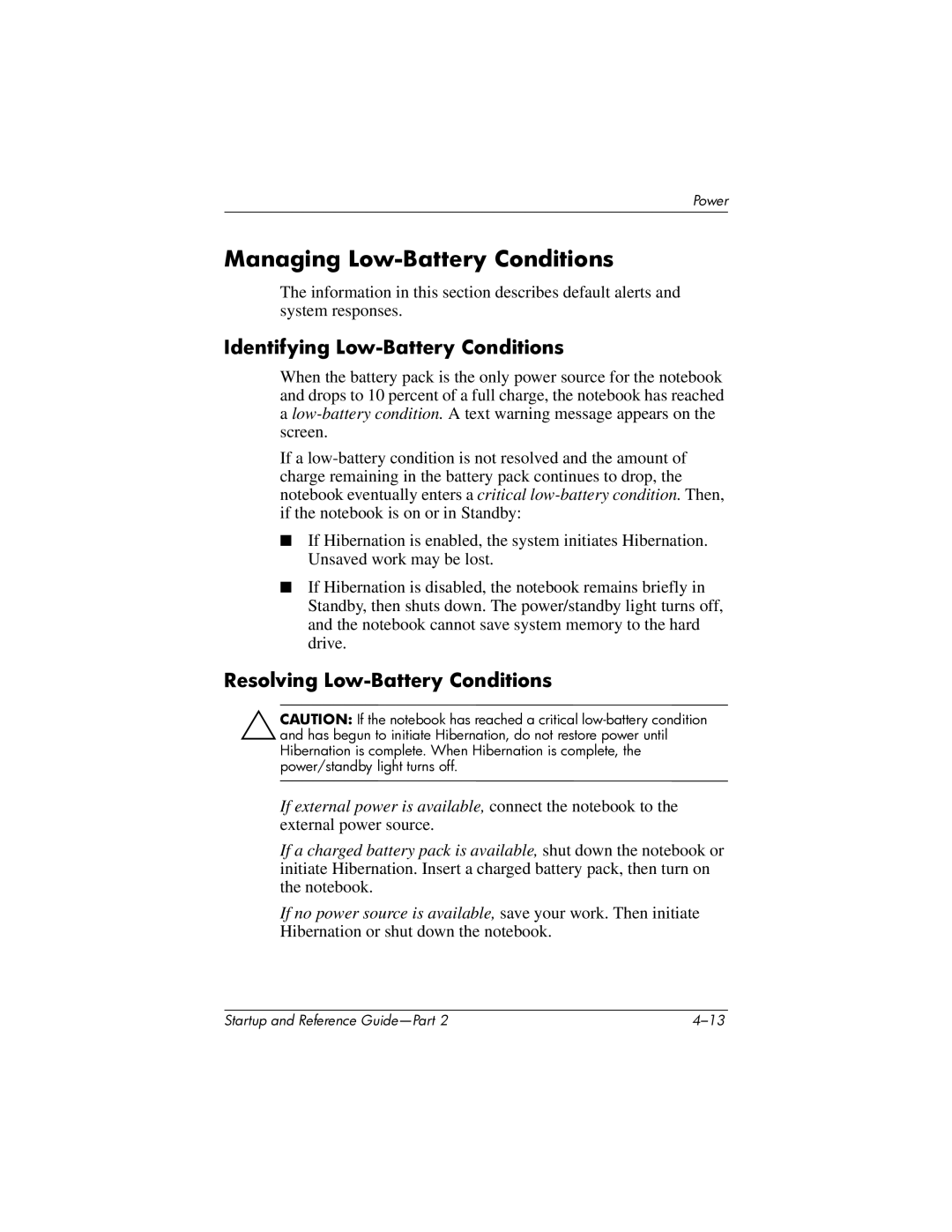
Power
Managing Low-Battery Conditions
The information in this section describes default alerts and system responses.
Identifying Low-Battery Conditions
When the battery pack is the only power source for the notebook and drops to 10 percent of a full charge, the notebook has reached a
If a
■If Hibernation is enabled, the system initiates Hibernation. Unsaved work may be lost.
■If Hibernation is disabled, the notebook remains briefly in Standby, then shuts down. The power/standby light turns off, and the notebook cannot save system memory to the hard drive.
Resolving Low-Battery Conditions
ÄCAUTION: If the notebook has reached a critical
If external power is available, connect the notebook to the external power source.
If a charged battery pack is available, shut down the notebook or initiate Hibernation. Insert a charged battery pack, then turn on the notebook.
If no power source is available, save your work. Then initiate Hibernation or shut down the notebook.
Startup and Reference |
